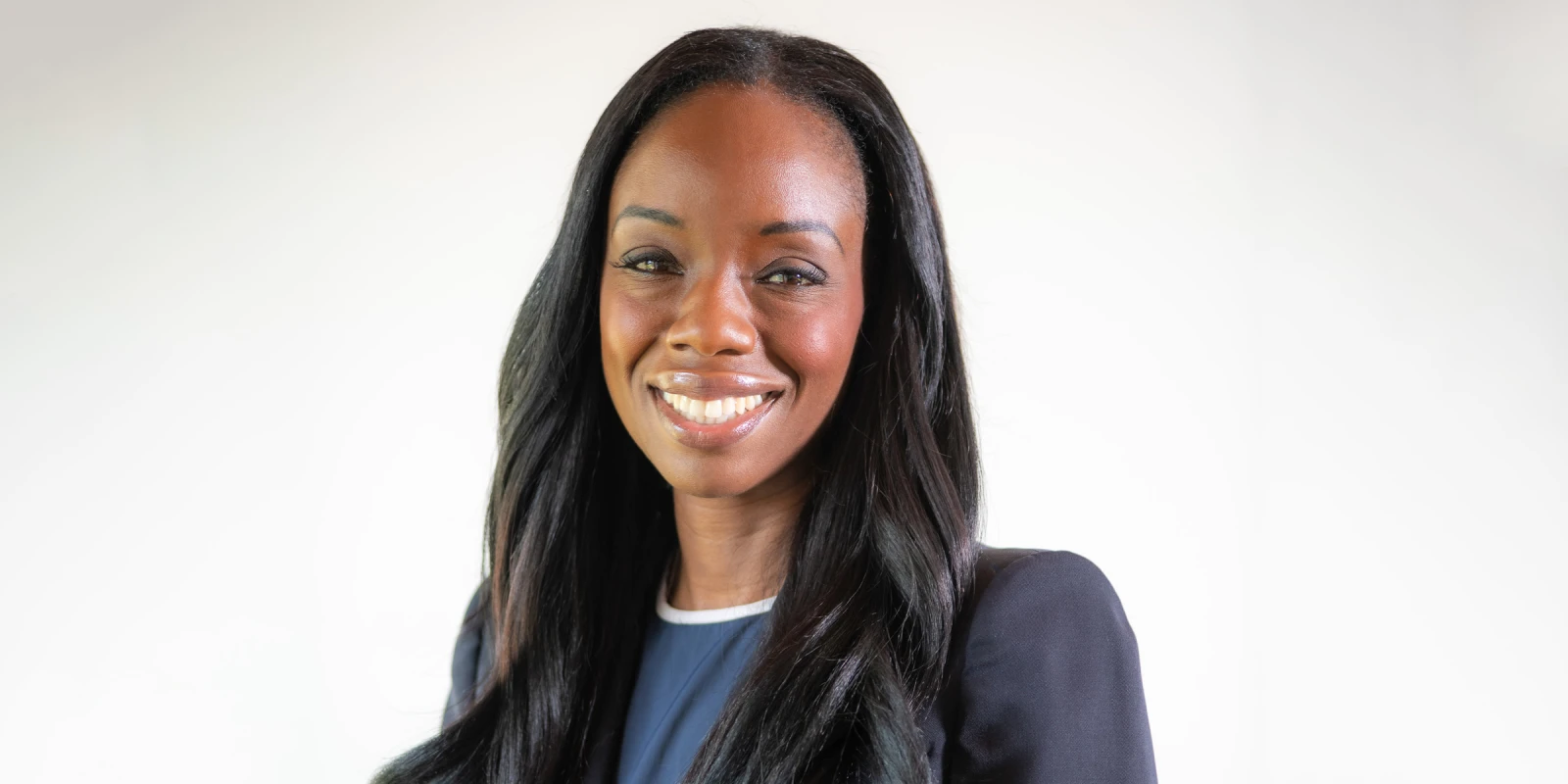Pediatrician Dr. Nadine Burke Harris still remembers the look on her mother’s face whenever any of her five children were sick. As an immigrant from Jamaica, her mother had to learn how to navigate health care in a new country with a complex health system. “That was something that I brought into my clinical practice when I was caring for an underserved community in San Francisco,” shared Dr. Burke Harris. “I could see that same level of worry in my patients’ eyes. I realized my role wasn’t just to write a prescription, but to help the families that I was caring for understand and get the resources to keep themselves healthy. My own experience really informed my ability to do that.”
Today, Dr. Burke Harris serves as California’s first surgeon general, one of only a handful of state-level surgeon generals in the country. As Dr. Burke Harris defines it, “Part of the role involves alerting you to the public health crisis you didn’t know was a crisis. It’s about communication, recognizing real-world challenges, and what makes a difference on the ground for families. It’s about using data to improve outcomes.” This was her strategy as a practicing clinician, and now she’s applying it to a diverse population of 40 million people.
Initially, Dr. Burke Harris had three primary goals: to make California a place where every child could thrive, to make health care more equitable, and to prevent and treat the health effects of childhood traumas. A little over a year into her role as surgeon general, COVID-19 had other plans. She kept her goals in focus, even while responding to a pandemic. “I’ve been most deeply involved in our vaccine rollout, working with community groups and government colleagues on logistics,” she shared. “The lowest socioeconomic quartile had 40% of disease cases and deaths.” Her team balanced both speed and equity of vaccine distribution to better address the disease burden gap between the least and most privileged. She also put support in place to prepare for the long-term health effects of the pandemic. “If we’re not planful now,” she warned, “we’ll continue to have effects on our health, our mental and behavioral health, and our children’s development for decades to come.”
Dr. Burke Harris is a leading researcher in the health consequences of adverse childhood experiences, or ACEs. “ACEs are a risk factor for a prolonged activation of the stress response system that can change brain development, the immune system, and even the way our DNA is read and transcribed,” according to Dr. Burke Harris. “The more ACEs an individual has, the greater their risk for serious health conditions. A person with four or more ACEs has double or more the risk for nine out of 10 of the leading causes of death, including heart disease, stroke, cancer, and Alzheimer’s disease.”
COVID-19 has only exacerbated the harmful effects ACEs have on our stress response systems. Adversity is on the rise, as evidenced by increases in intimate partner violence, substance abuse, and mental health symptoms. And many of the ways to buffer stress aren’t possible due to necessary social distancing. “Kids have been away from one of their biggest sources of buffering care outside of the family, which is school. Families haven’t been able to connect with loved ones,” Dr. Burke Harris pointed out. “I’m a mom of four boys, and there are days when I miss my girls’ night. I miss my time out to blow off steam. All of these things are different. As a result, we’re seeing some of the earliest signs of increased toxic stress in children and adults.”
This additional stress makes it harder to manage stress-related chronic diseases, like diabetes, asthma, and cardiovascular disease. As Dr. Burke Harris noted, “When there is a major stressor, like a natural disaster — we’ve seen it with earthquakes, we saw it after Hurricane Katrina — we see measurably increased things like blood pressure. These are the ways the pandemic is increasing risk for children and adults.”
All physicians can play a key role in mitigating the impact of ACEs, not just pediatricians like Dr. Burke Harris. “Oftentimes we think about ACEs in terms of kids and their future risk,” she said. “But it’s important to understand that adults who have experienced ACEs in the past may be more vulnerable to subsequent stressors because of the way that past stressors have been written into their epigenetic regulation. It’s really important for not only child-serving, but adult-serving clinicians to recognize ACEs as a risk factor.”
Toxic stress is treatable and preventable, even if we can’t completely prevent ACEs themselves. Dr. Burke Harris shared, “There are interventions to help regulate the stress response, and many of them include things that are readily accessible to our patients. Things like regular exercise, mindfulness, spending time in nature, nutritional strategies like an anti-inflammatory diet, are all important for people who’ve experienced adversity.” She suggested reading her report, Roadmap for Resilience, and visiting ACEs Aware for more information and resources to reduce the harmful impact of stress. Dr. Burke Harris has also launched a public campaign to raise awareness about ACEs and toxic stress.
Clinicians aren’t immune to stress either. “Self-care isn’t selfish,” advised Dr. Burke Harris. “Many of us have been on the front lines of the COVID pandemic. I see so many folks who forget to put their own oxygen mask on. We need to care for ourselves so we can care for others. It’s true for us in our roles as physicians, but also as parents and partners. Self-care is a skill we need to learn.” Gardening is one form of self-care that she’s currently enjoying. “It’s a little bit of exercise, meditation, and I get to eat the food I grow. I even distill some of the plants for their essential oils and make perfumes, room sprays, and bath salts.”
Dr. Burke Harris has learned that every crisis presents opportunities. “A silver lining for my family was that I spent a lot more time with my kids,” she said. “That’s something I’m not willing to totally let go of when things get really busy again. I think, especially for women physicians, now is a great time for us to negotiate how we structure our time and our lives.”
Do you have experience treating or preventing ACEs? Share your thoughts in the comments!
Which women in medicine would you like to read about? Share your suggestions or nominate someone.
Photo by Bob Minkin







